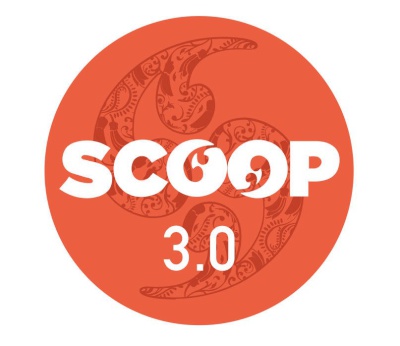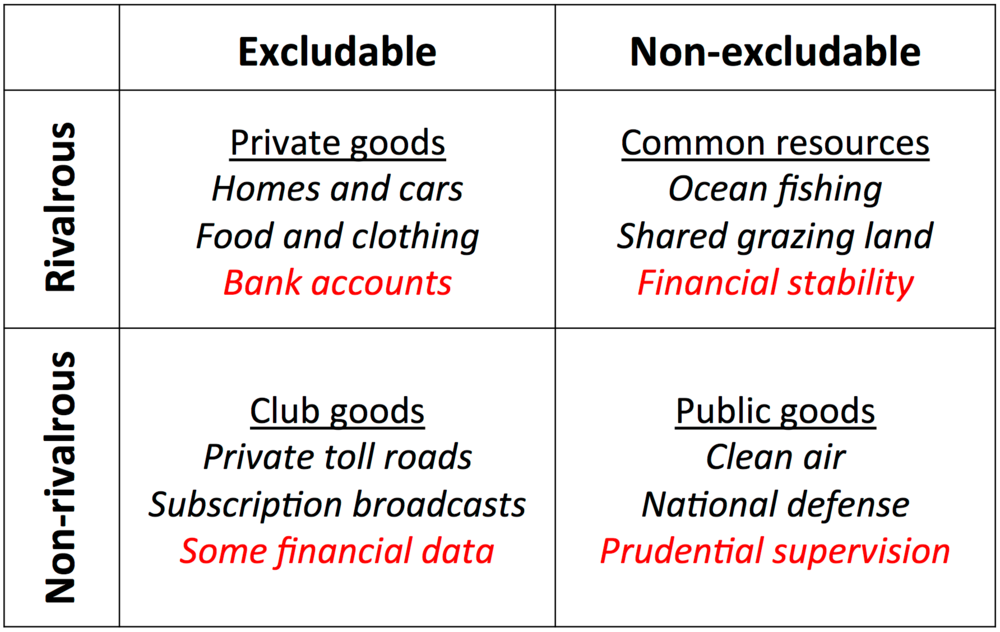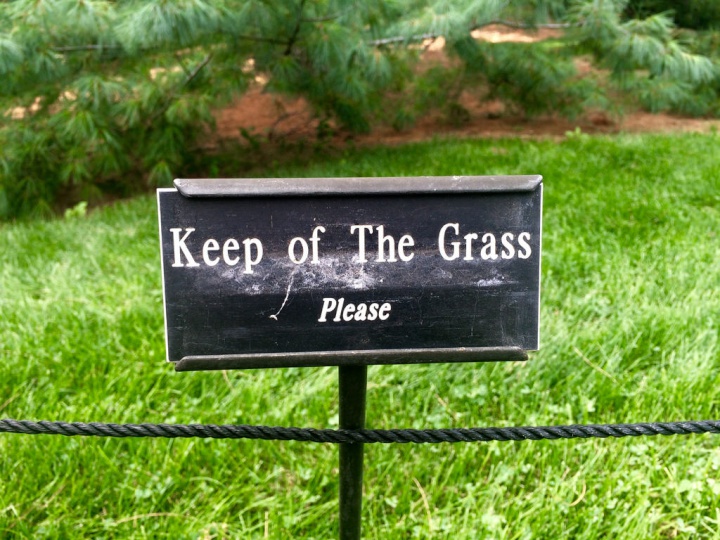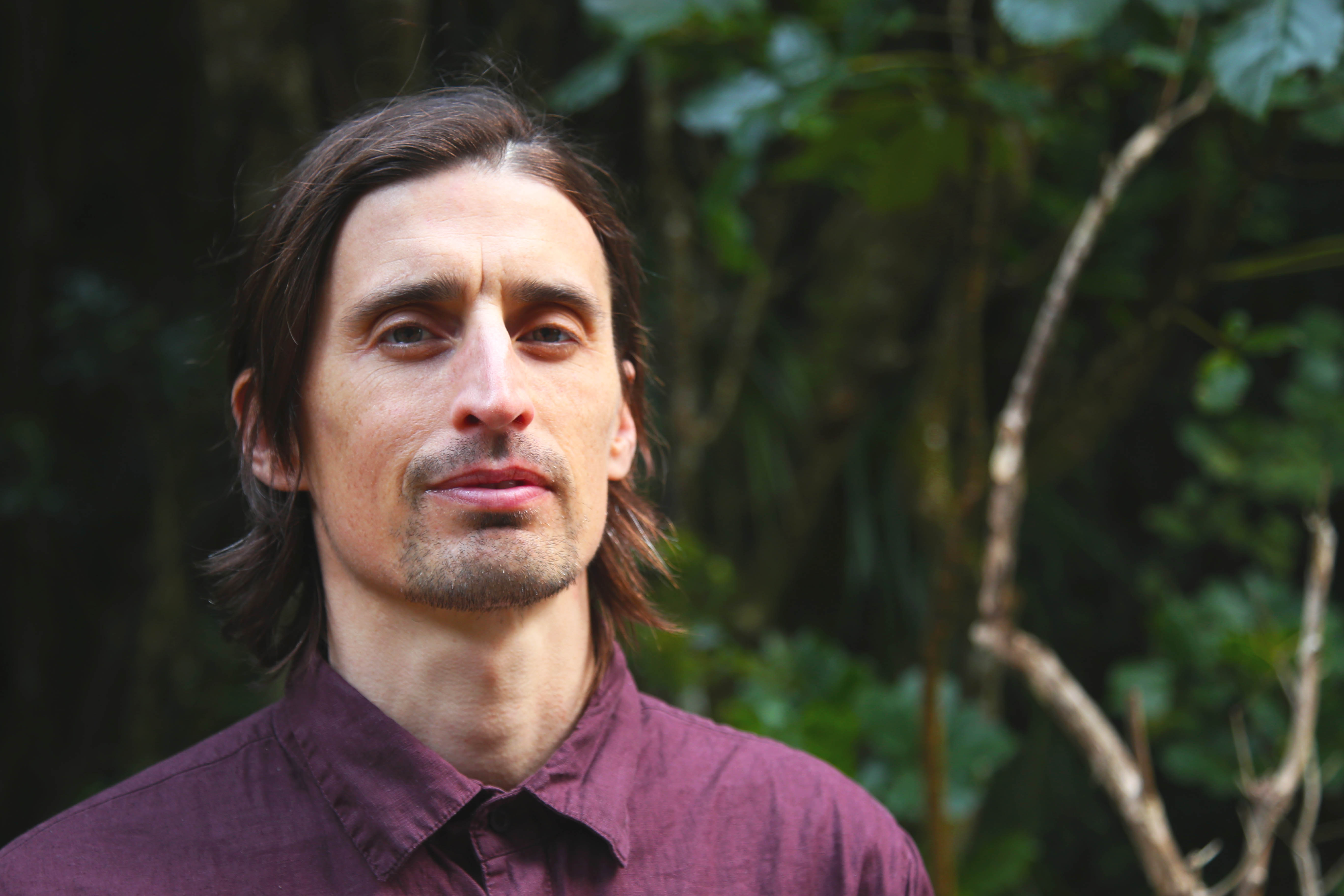
Image: Economical Rice Podcast
In response to an urgent need to develop Scoop’s innovative ‘social enterprise’ business model to the next level, our solution has emerged in the form of the “Scoop 3.0” plan. However, the well recognised economics/public policy problem of ‘Freeriding’ on the ‘public good’ of Scoop by commercial users is threatening its very existence and our ability to deliver this plan.
Last year we launched our new ScoopPro service, offering essential professional media tools and a professional use license to professional users. The ScoopPro licensing terms require that commercial users of Scoop.co.nz pay a reasonable fee in order to access the Scoop site so that this same information remains free and accessible to the wider public regardless of their disposable income.
We did this because we recognised that independent media badly needs a new financialisation model that is not permanently reliant on reader donations or advertising. We see public interest media as a right and an essential public service, or in public policy terms a ‘public good’. We believe Scoop’s ‘ethical paywall’ model represents an important financial model for the future of independent public interest media globally. As such we are highly motivated to prove its success and then spread the idea globally through the “Scoop 3.0” plan in 2019.
This ScoopPro model is already over 90% of the way to the goal of funding our core operations, with over 200 organisations of different sizes holding ScoopPro licenses. These early adopters include civil and public sector, corporates, unions, political parties, media companies and SMEs who believe in our mission and this unique approach and value the services Scoop offers. These organisations accept that Scoop.co.nz has the right set its terms and conditions of use, and value our service sufficiently to pay a modest monthly fee for their staff to be able to access Scoop without breaching our our copyright.

We have effectively already reduced our reliance on advertising to a nearly insignificant amount as a result which is something we think is worth celebrating for an independent media company.
However, many organisations are still refusing to comply with these clear license terms despite repeated requests and continued use of the Scoop site for professional purposes. This is understandable to an extent as it is a relatively new concept and a little hard to grasp at first, and people these days are accustomed to getting content for free. However, we have made repeated attempts to contact many of the larger organisations that we know use Scoop regularly to inform them of this new policy towards use of our content. Many just ignore our requests, and others claim they do not use Scoop in a professional context, despite our IP monitoring suggesting otherwise.
The Problem of
Freeriding
If Scoop is seen as a ‘public good’ then this phenomenon represents what is known in public policy circles as ‘freeriding’. Freeriding occurs when people can benefit from a good/service without paying anything towards it. If enough people can enjoy a service without paying for the cost of providing it, then there is a danger that the good will be under-provided or not provided at all. In other words, if too many people start to free ride, a system or service will eventually not have enough resources to operate and will break down.
Economist Gulzar Natarajan on the Urbanomics blog explains how digital Media sources such as Scoop.co.nz can represent a ‘public good’ and can be subject to ‘freeriding’:
“Public goods are those which are non-excludable (the supplier cannot exclude those who do not pay for its from consuming it) and non-rivalrous (the same news item can be seen or read by many people at a time, without affecting each one's utility).... Free riders are agents who consume more than their share of resources, or who do not bear the proportionate cost of production of any good which they and the society benefits from.”
Economist Richard M. Ebeling further defines Non-excludable access on the Foundation for Economic Education site:
“A non-excludable good is one that someone does not pay for, or can avoid paying for, to use or consume. It is said to be highly difficult or costly to exclude such an individual from having access to it even though he’s not paying for it. Thus, such an individual can benefit from its supply without having paid anything to cover some portion of its production costs in making it available on the market.”

Image: Moneyandbanking.com
Scoop has no physical paywall preventing free access, or freeriding by organisations that are required by our terms to purchase licenses. To impose such a paywall ‘excluding’ these freeriders would be ‘highly difficult or costly’ for us at the current time. It would also have the undesirable consequences of limiting public access to Scoop by placing it behind a paywall. Therefore it is clear that Scoop is very much a ‘non-excludable’ resource and hence can be considered as a public good suffering from ‘freeriding’.
This free-riding on the efforts of the Scoop team and the 100 companies (and private donors) who are paying their fair share to keep this public-service and non-profit news service alive is placing the whole system in jeopardy. This situation is getting serious and means that Scoop’s continued existence as a ‘public good’ to society is under serious threat.
However, to simply impose a hard paywall such as NBR and many other publishers globally have done, is an action Scoop objects to ethically. This would mean that ordinary citizens would be forced to pay for Scoop’s content. We do not believe that is in the public interest, as vital news and public interest information should remain free to non-professional users.
Imposing a paywall would not only be ethically against our goals, but it would discourage submissions of news items and reduce our readership significantly. It would therefore undermine the value provided to most of the organisations who use Scoop professionally. Such organisations use Scoop not just to know what is going on, but also to - in real time - communicate with Scoop's 400,000+ monthly readers. This outcome would therefore be in nobody’s interest.
We have decided not to try to "enforce" these terms and conditions via the blunt instrument of a paywall for these reasons. Fundamentally we don’t believe Scoop should be required to do so beyond clearly advising commercial users of their obligations. However, we have been doing this now for 3.5 years and still experience the problem of freeriding. Scoop Co-Founder Alastair Thompson puts it well in this analogy:
“A public garden doesnt need to enforce rules against stealing flowers.... it just needs signs telling people not to do it.”

To take this metaphorical public garden further, the City Council could always build a barbed wire fence around the flowers, however this would also prevent well intentioned people from frolicking barefoot among the flowers or smelling them. Why punish and exclude these compliant people simply in order to prevent freeriding. Everyone suffers in this scenario.
The ScoopPro ‘Ethical Paywall’ approach was our solution to this ethical and financial dilemma. The ScoopPro approach does not place hard exclusions or physical barriers on Scoop, however this simply makes enforcement that much harder in the face of the recognised problem of ‘freeriding’. We are reliant on the honesty and goodwill of organisations using Scoop to admit that they gain value from Scoop and to support us accordingly through ScoopPro licensing.
Mass Media Freeriding
Another problem identified by Gulzar Natarajan is the freeriding by mass media on smaller media that cover local and public interest news. By shirking this responsibility and focusing on more profitable ‘clickbait’ such mass media channels are in his view freeriding on this effort to deliver real news.
“The mainstream mass media tries to free-ride on the more socially responsible media channels, who supply the public good despite the adverse incentive system. The social goods, like propagation of issues of civic and public concern, are public goods and hence its supply is not compatible with the existing market incentive structure for the mass media channels. They suffer from the issue of free-ridership, in so far as every mass media group thinks that it can shirk and let others deliver this public good, which does not fetch it any economic return from the market. These goods therefore tend to be under supplied by the mass media market.”
This could certainly apply in NZ where major players Stuff and ME are rapidly retreating from coverage of local and public interest news and closing down numerous local newspapers. We know that most of the mass media use Scoop.co.nz regularly as a research tool for its’ archive of press releases and news items dating back 20 years. Even if this usage is only as a means to check names and dates, this usage requires a ScoopPro license. We know this is happening as we can see which IPs are regularly accessing Scoop. However, to date very few of the major media companies in New Zealand have a license to do so. They are deliberately breaching our clear terms of access. A notable exception is RNZ with which Scoop has signed a republishing agreement which has helped us fill gaps in our local coverage. RNZ has been granted a ScoopPro license as a reciprocal arrangement.
This freeriding by our supposed ‘colleagues’ is highly ironic when seen in light of a Stuff article published last week calling for more collaboration between New Zealand media organisations and for bold new ideas around making journalism sustainable. Stuff chief executive Sinead Boucher is quoted saying:
"We could support some forward-looking conversations and thinking about the best way to support the role of New Zealand journalism and the critical role of the fourth estate for a healthy society. That is something that transcends company interests and would benefit us all."
However, Scoop have been running a highly innovative approach to copyright and financing journalism for a few years now, yet few of these major media players have offered any support or recognition and flat out refuse to comply with our clearly stated copyright terms. How are we to interpret such hypocrisy and self interested behaviour?
Why
Freeriding on Scoop
Matters
Scoop is the only publicly accessible daily feed and permanent archive of raw news and independent media coverage in New Zealand. If this freeriding behaviour continues we will be unable to guarantee the continuation of this service beyond 2018. This would be a huge loss for the NZ media sector and for the public as it would mean this extensive archive and consistent raw news source will no longer be present. Scoop’s greatest strength is consistency and reliability. We are coming up on 20 years on providing a 7 day a consistent, quality, highly used media service.
Scoop’s ability to produce original investigative journalism has taken a hit as a result of the financial downturn suffered by the loss of advertising income. However, in order to get back to a position to once again increase our output, we have been primarily focusing on getting the basics right. We still have a strongly independent editorial ethos, and Scoop Political Editor Gordon Campbell is one of only a handful of veteran critical independent journalists still operating in New Zealand.
When we can get Scoop back into a better financial position through the Scoop 3.0 effort, we will be well placed to participate in shaping what could be a golden era for independent journalism in Aotearoa. There are many journalists out there, who if we could afford to pay them, would love to work under such an independent editorial approach. Our goal is to build a sustainable platform from which progressive and thoughtful investigative journalism can once again flourish and challenge the clickbait and status quo affirming journalism in New Zealand.
We will also explore adopting an ‘engaged journalism’ approach like that pioneered by De Correspondent in the Netherlands to enhance the Investigative journalism work Scoop performs in the future. This approach will enable readers and organisations to work with Scoop journalists in a transparent and collaborative manner to investigate important public interest issues.
How this benefits NZ media
Scoop provides a voice for NZs various sectors and keeps the public informed on the current media and political discourse and debate. We regularly publish press releases from a wide range of organisations and much of our daily feed of information and archive exists nowhere else in New Zealand media.
Why should you support Scoop?
Scoop relies on the organisations using our press release service to comply with our professional licensing requirement so that we can continue providing free public access to this information. We believe the continued existence of this archive is highly important for the health of NZ’s democratic society.
Please help us by ensuring your organisation or any others using Scoop stop Freeriding and support Scoop now. We need a groundswell of support for this innovative model by New Zealand organisations that care. There are signs already it is happening.
Just last week we signed up four new ScoopPro license holders Emerge Aotearoa, The Commission for Financial Capability (CFFC), The Good South and Kiwiwallet who took advantage of the 30% discount deal in our PledgeMe crowdsale campaign. This support get us a step closer to our target of getting 100 new ScoopPro organisations by the end of the year.
We are very close to being sustainable through this ScoopPro revenue and just need 96 more organisations to comply with this commercial licensing approach in order to be a fully sustainable independent newsroom (we think that will be a huge accomplishment worth celebrating for our community.) It will also put us in a powerful position from which we can take the crucial next steps of expansion, partnership and decentralisation.
How You Can Help -
The “Scoop 3.0”
Plan

The recently launched “Scoop 3.0” strategy seeks to make Scoop a sustainable and cooperative community-owned publisher within the next year. It will also make much needed improvements to our technology infrastructure to bring Scoop into the modern era of AI and blockchain enabled, and personalised publishing and make Scoop’s technology a viable and profitable product. The recently launched crowdsale and crowdfunding campaign is an essential first step in the important transition.
The ‘crowdsale’ element of this campaign is aimed at commercial organisations using Scoop and is their chance to comply with our terms and subscribe to a ScoopPro license at a healthy 30% discount. We hope that the vast majority of this sum sought can be raised through the sale of ScoopPro licenses so that the burden on our citizen supporters is reduced.
We need your help in this community effort to spread the message and help us increase compliance with our very reasonable license terms. Asking people for money is never an easy thing to do, however we believe asking organisations to compensate us fairly for their use of our valuable source of news information is a just cause. We hope you agree.
Both organisations and
ordinary readers are invited to support this community
effort to enable the Scoop 3.0 transition:
Organisations
If your organisation uses Scoop press releases regularly, then you should have a license.
On pledging to the crowdsale campaign, you will receive a complimentary ScoopPro license for 12 months at a special discounted rate of 30% off.
The ScoopPro service includes the following key benefits:
• NewsAgent media intelligence tool - provides you email updates for key sectors of interest, politics and your region and even keyword alerts at a fraction of the cost of media monitoring services.
• InfoPages press enhancer - provides you a custom page on Scoop for your content with backlinks and logo and bio placement on stories.
Non professional readers
If you want to support us in this effort, you can also access the extra power of enhanced news intelligence and receive a special ScoopPro-Lite package featuring our In The Loop weekly newsletter as well as a selection of other newsletters on your chosen topics. There are also other rewards such as a Freerange book on the future of journalism or a new 19 year anniversary edition Scoop Custom Notebook)



 Ian Powell: Postscript On Ethnic Cleansing, Genocide And New Zealand Recognition Of Palestine
Ian Powell: Postscript On Ethnic Cleansing, Genocide And New Zealand Recognition Of Palestine Gordon Campbell: On Why Leakers Are Essential To The Public Good
Gordon Campbell: On Why Leakers Are Essential To The Public Good Ramzy Baroud: Global Backlash - How The World Could Shift Israel's Gaza Strategy
Ramzy Baroud: Global Backlash - How The World Could Shift Israel's Gaza Strategy DC Harding: In The Spirit Of Natural Justice
DC Harding: In The Spirit Of Natural Justice Martin LeFevre - Meditations: Animal Encounters During Meditative States
Martin LeFevre - Meditations: Animal Encounters During Meditative States Ian Powell: Gisborne Hospital Senior Doctors Strike Highlights Important Health System Issues
Ian Powell: Gisborne Hospital Senior Doctors Strike Highlights Important Health System Issues